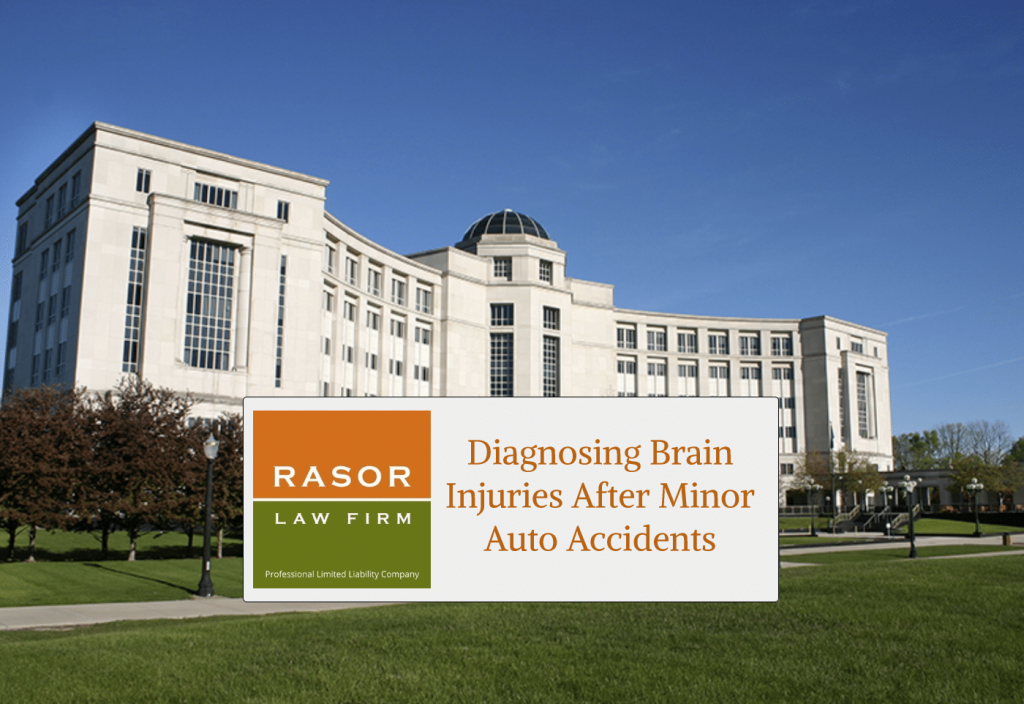After being involved in a car accident that seemed minor, many people walk away feeling relieved to have no visible injuries. However, some victims later begin to notice cognitive issues, headaches, fatigue, or difficulty concentrating. These could be signs of a Minor Crash Brain Injury — a hidden but serious condition that often goes undiagnosed immediately following a low-impact collision. The idea that a seemingly harmless fender-bender can lead to a brain injury surprises many, but it is a reality with real consequences. You may not lose consciousness or feel immediate pain, but your brain could still be affected by the abrupt motion of the crash. Identifying and diagnosing this type of injury early is essential for both recovery and protecting your legal rights. At Rasor Law Firm, we understand how overwhelming and confusing the aftermath of an accident can feel. If you suspect symptoms of a brain injury following a minor crash, it’s important to address it head-on with medical and legal support.
What to Know About Brain Injuries After a Low-Impact Accident
A Minor Crash Brain Injury refers to a form of traumatic brain injury (TBI) that occurs during a low-speed or minimal-damage vehicle accident. Although the accident may not cause visible damage to your vehicle or body, the sudden stop or jarring motion can cause the brain to move within the skull. This internal collision may lead to microscopic damage to brain tissue, affecting neurological and cognitive function.
For instance, someone involved in a 10-mph rear-end collision might later experience confusion, dizziness, or blurred vision. In another case, a driver who bumps their head on the window during a side impact could develop frequent headaches and difficulty remembering simple tasks. These symptoms might not be recognized as signs of a brain injury unless specifically evaluated by a healthcare provider with expertise in TBIs.
Because of their subtle short-term symptoms and the misconception that only severe crashes cause serious injuries, Minor Crash Brain Injuries often go untreated. That’s why education and medical awareness are so critical.
Why It’s Important to Take Minor Crash Brain Injuries Seriously
Even though the initial accident seemed trivial, a Minor Crash Brain Injury can have significant long-term effects on a victim’s life. These injuries can impact cognitive function, emotional stability, physical health, and overall quality of life. Often, people dismiss their symptoms or feel pressure to return to their normal routines, only to find their symptoms worsen over time.
Ignoring warning signs can result in major setbacks – medically, professionally, and legally. Without documentation, pursuing a claim for damages becomes more challenging. Moreover, untreated brain injuries can impact a person’s ability to work, socialize, or perform simple tasks, all of which can contribute to emotional stress and financial hardship.
- A teacher loses focus during lessons after a crash and makes critical errors, risking their job.
- A delivery driver develops lasting dizziness and must reduce hours, leading to a drop in income.
- A parent struggles with memory lapses and mood swings, straining relationships at home.
The Process of Handling a Brain Injury After a Minor Crash in Michigan
- Step 1: After any accident, seek medical attention even if you’re not in pain. Request a neurological exam if you hit your head or feel “off.”
- Step 2: Get imaging if symptoms like confusion, nausea, or memory loss develop. MRIs and CT scans may help detect injuries.
- Step 3: Contact a Michigan personal injury attorney with experience in brain injury claims to understand your rights and next steps.
Useful Advice for Coping With Brain Injuries From Low-Impact Accidents
Your Questions Answered About Brain Injuries From Minor Accidents in Michigan
How Rasor Law Firm Steps In to Help Clients Like You
Rasor Law Firm has a track record of fighting for clients who suffer from less obvious but still life-altering injuries like Minor Crash Brain Injury. Our team understands how frustrating it is to be dismissed or misunderstood by insurers or medical providers. We’ve helped hundreds of Michigan residents navigate these complicated cases with compassion and persistence.
We do more than provide legal experience. We connect clients with medical experts, gather evidence to support your symptoms, and coordinate the documentation necessary for insurance claims or court. With our client-focused approach, we focus on your recovery and peace of mind while handling the legal stress. You’re never alone when Rasor Law Firm is on your side.


